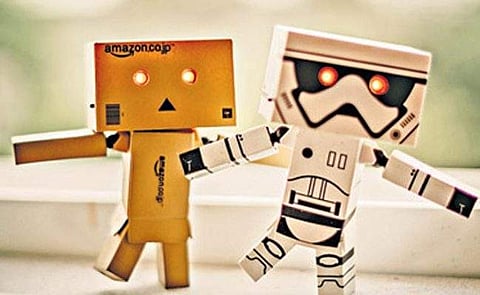

There have been cases of assembly line workers being replaced by robots, such as in automobile manufacturing. There has also been talk of lawyers being replaced by robots. These robots have now made their way into journalism, especially in stock market reporting and analysis. Thus, assembly line workers and office staff getting replaced by robots are no longer considered surprising news.
A new phase has arrived wherein robots might boss over employees, as detailed by Kevin Roose in an article titled ‘AI may not take your job, but it could become your boss’, published in New York Times (23/6/19) and excerpted below:
When Conor Sprouls, a Customer Service Representative at the call centre of the insurance giant MetLife, talks to a customer over the phone, he keeps one eye on the bottom-right corner of his screen. There, in a little blue box, AI (the artificial intelligence robot) tells him how he’s doing. Talking too fast? The programme flashes a speedometer icon, indicating that he should slow down. Sounding sleepy? The software displays an ‘energy cue,’ with a picture of a coffee cup. For decades, people have fearfully imagined armies of hyper-efficient robots invading offices and factories, gobbling up the jobs once done by humans. But while we worry about the potential of artificial intelligence replacing rank-and-file workers, we might have overlooked the possibility of it replacing our bosses, too.
Sprouls and the other call centre workers at his office in Warwick still have plenty of human supervisors. But the software on their screens has become a kind of adjunct manager, always watching them. At the end of every call, Sprouls’ robot notifications are tallied and added to a statistical dashboard that his supervisor can view. The goal is to make employees more efficient by giving them real-time feedback. In this kind of workplace, AI sees humanity itself as the thing to be optimised. Amazon uses complex algorithms to track worker productivity in its fulfilment centres, and can even automatically generate the paperwork to fire workers who don’t meet their targets. Critics have accused companies of using algorithms for managerial tasks, saying that automated systems can dehumanise and unfairly punish employees.
Now, imagine if robots such as these are introduced in educational campuses. What would be their scope and relevance? What would they achieve? Will they vitiate the spirit of the campus and dehumanise the educational process?
